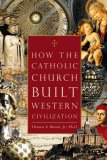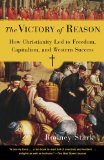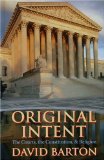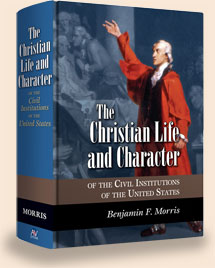[27] 4 Washington Irving, Life of George Washington 475 (New York: G. P. Putnam & Co., 1857); Mrs. C. M Kirkland, Memoirs of Washington 438 (New York: D. Appleton & Company, 1870); Charles Carleton Coffin, Building the Nation 26 (New York: Harper & Brothers Publishers, 1882); etc.
[28] 1 Richardson, Messages and Papers 51-54 (April 30, 1789).
[29] 1 Annals of Congress 29 (April 30, 1789).
[30] Acts Passed at a Congress of the United States of America Begun and Held at the City of New-York, on Wednesday the Fourth of March, in the Year 1789, 104 (Hartford: Hudson & Goodwin, 1791) (August 7, 1789).
[31] 1 Debates and Proceedings 685 (1st Cong., 1st Sess.) (July 21, 1789, passage by the House), and 1 Debates and Proceedings 57 (August 4, 1789, passage by the Senate).
[32] Constitutions (1813) 364 ("An Ordinance of the Territory of the United States Northwest of the River Ohio," Article III).
[33] For example, State constitutions across the decades reflecting this requirement include the 1803 Ohio Constitution (Constitutions (1813), 334, Ohio, 1802, Article 8, Section 3); the 1817 Mississippi Constitution (The Constitutions of All the United States According to the Latest Amendments (Lexington, KY: Thomas T. Skillman, 1817), 389, Mississippi, 1817, Article 9, Section 16); the 1858 Kansas Constitution (House of Representatives, Mis. Doc. No. 44, 35th Cong., 2nd Sess., February 2, 1859, 3-4, Article 1, Section 7, of the Kansas Constitution); the 1875 Nebraska
Constitution (M. B. C. True, A Manual of the History and Civil Government of the State of Nebraska (Omaha: Gibson, Miller, & Richardson, 1885), 34, Nebraska, 1875, Article 1, Section 4); etc.
[34] See The Constitution of North Carolina 42 (Raleigh: Rufus L. Edmisten, Secretary of State, 1989) (Article 9, Section 1); Constitution of the State of Nebraska 1-2 (Lincoln: Allen J. Beermann, Secretary of State, 1992) (Article 1, Section 4); Page's Ohio Revised Code Annotated 24 (Cincinnati: Anderson Publishing Co., 1994) (Article 1, Section 7).
[35] United States Code Annotated 1 (St. Paul: West Publishing Co., 1987) ("The Organic Laws of the United States of America").
Religion in Public | WallBuilders |
|
|
|
Congress was sitting in New York on April 30, 1789, when Washington took the oath of office as Chief Executive. During his inauguration, Washington took the oath as prescribed by the Constitution but added several religious components to that official ceremony. Before taking his oath of office, he summoned a Bible on which to take the oath, added the words "So help me God!" to the end of the oath, then leaned over and kissed the Bible. [27] His "Inaugural Address" was filled with numerous religious references, [28]
and following that address, he and the Congress "proceeded to St. Paul's Chapel, where Divine service was performed." [29]
Only weeks later, Washington signed his first major federal bill [30] - the Northwest Ordinance, drafted concurrently with the creation of the First Amendment. [31] That act stipulated that for a territory to become a State, the "schools and the means of education" in that territory must encourage the "religion, morality, and knowledge" that was "necessary to good government and the happiness of mankind." [32]
Conforming to this requirement, numerous subsequent State constitutions included that clause, [33] and it still appears in State constitutions today. [34] Furthermore, that law is listed in the current federal code, along with the Constitution, the Declaration, and the Articles of Confederation, as one of America's four "organic" laws or foundational charters. [35]
Washington would be appalled that today's Supreme Court says it is "unconstitutional" for children in public schools to be taught that Christianity is "necessary to good government and the happiness of mankind." Every single person who signed the Constitution believed that it was, and intended for government to endorse that idea.
In his Inaugural Address, Washington, speaking publicly and officially as the new President of the United States, said:
Such being the impressions under which I have, in obedience to the public summons, repaired to the present station, it would be peculiarly improper to omit, in this first official act, my fervent supplications to the Almighty Being, who rules over the universe, who presides in the councils of nations, and whose providential aids can supply every human defect, that His benediction may consecrate to the liberties and happiness of the people of the United States a government instituted by themselves for these essential purposes, and may enable every
instrument employed in its administration to execute with success the functions allotted to his charge.
In tendering this homage to the great Author of every public and private good, I assure myself that it expresses your sentiments not less than my own; nor those of my fellow-citizens at large, less than either. No people can be bound to acknowledge and adore the invisible hand, which conducts the affairs of men, more than the people of the United States. Every step, by which they have advanced to the character of an independent nation, seems to have been distinguished by some token of providential agency. And, in the revolution just accomplished in the system of their united government, the tranquil deliberations and voluntary consent of so many
distinct communities, from which the event has resulted, cannot be compared with the means by which most governments have been established, without some return of pious gratitude along with a humble anticipation of the future blessings which the past seem to presage. These reflections, arising out of the present crisis, have forced themselves too strongly on my mind to be suppressed. You will join with me, I trust, in thinking that there are none under the influence of which the proceedings of a new and free government can more auspiciously commence.
President Washington could not have said these things to children in a public school classroom in 2013. (And not just because American public school students are generally illiterate and wouldn't understand half of what colonial teenagers would have understood.)
On the day after the Constitution went into effect in March of 1789, America as a whole and each one of the 13 united States was a Christian Theocracy.
A Christian Theocracy seeks to give God all the glory. It's hard to see that God rules today when the State claims to be the Messiah.
|






